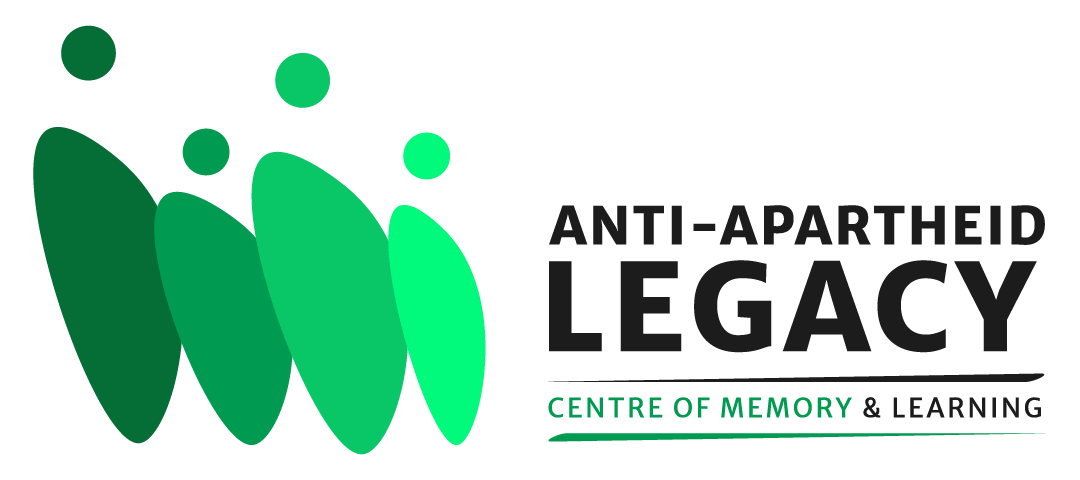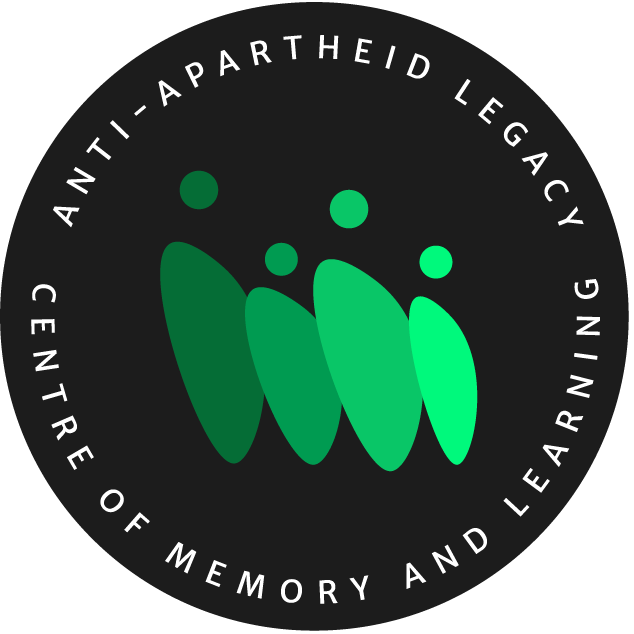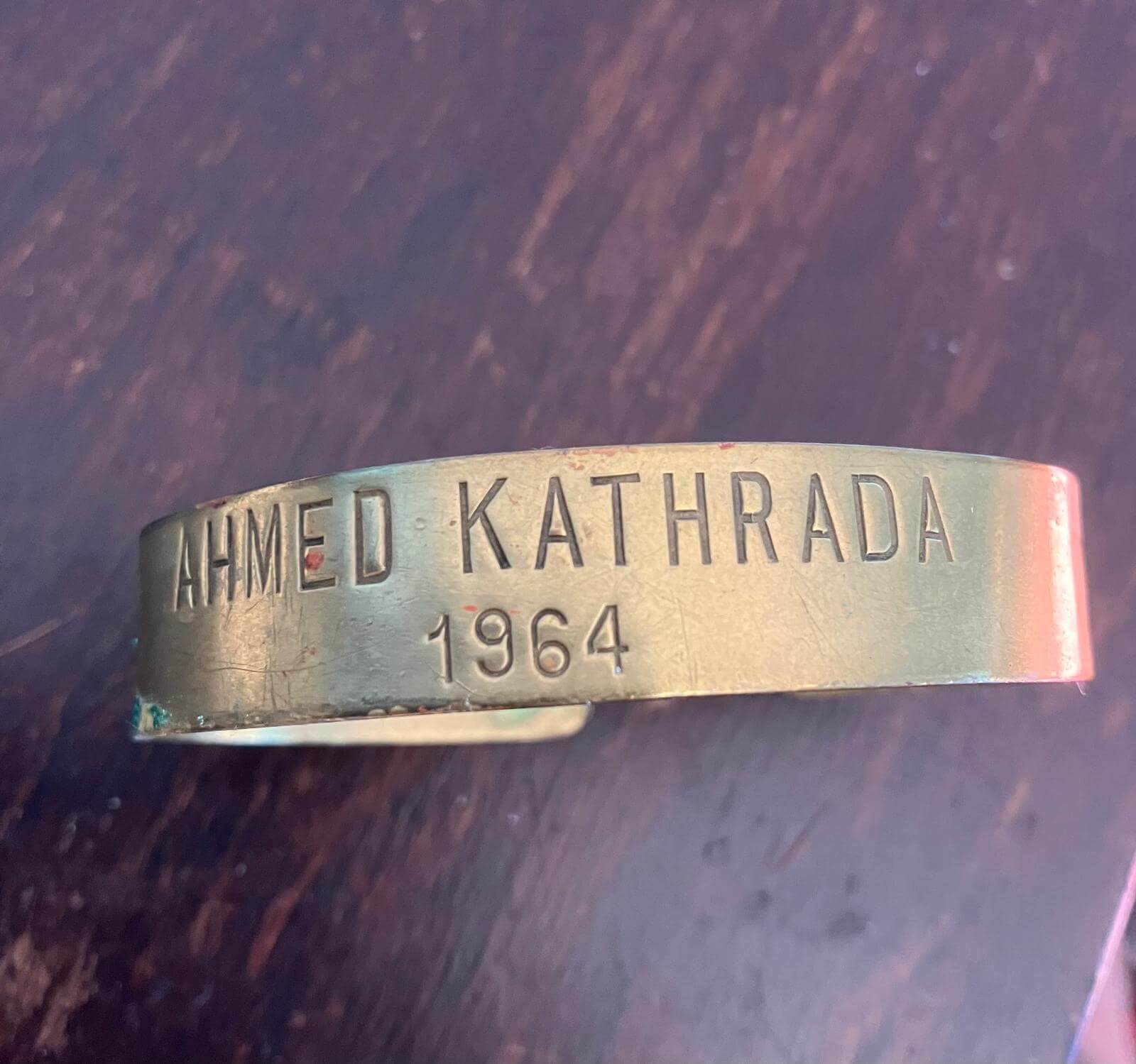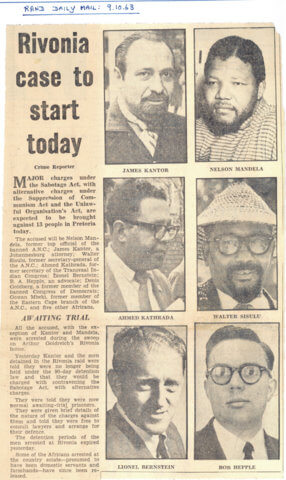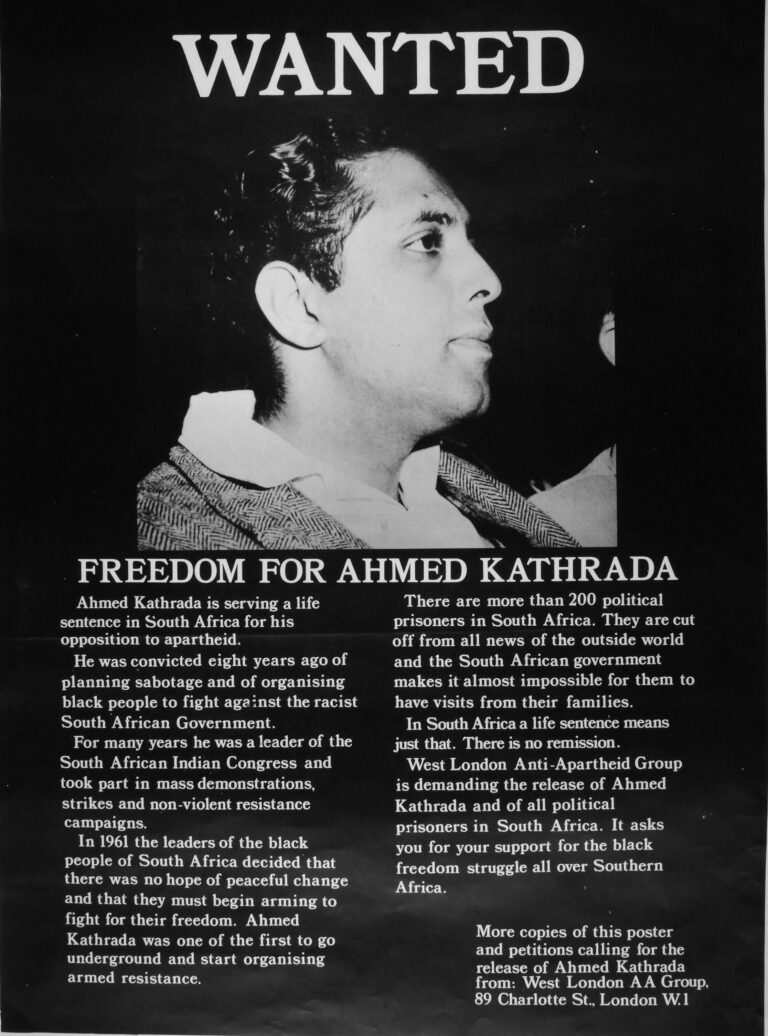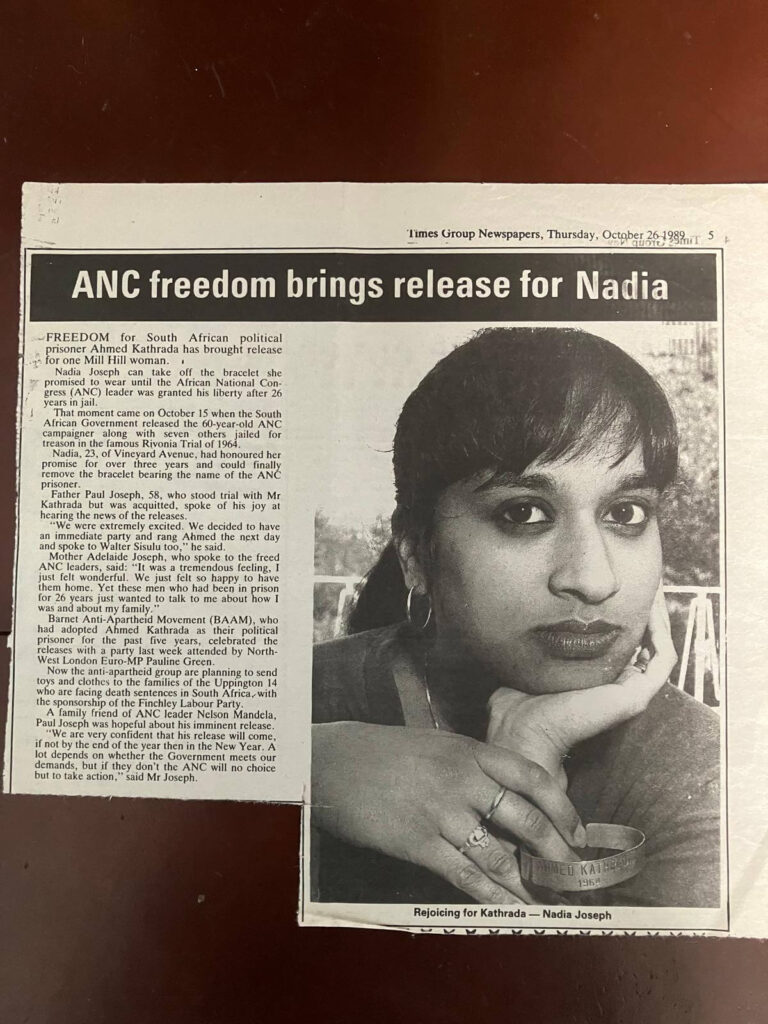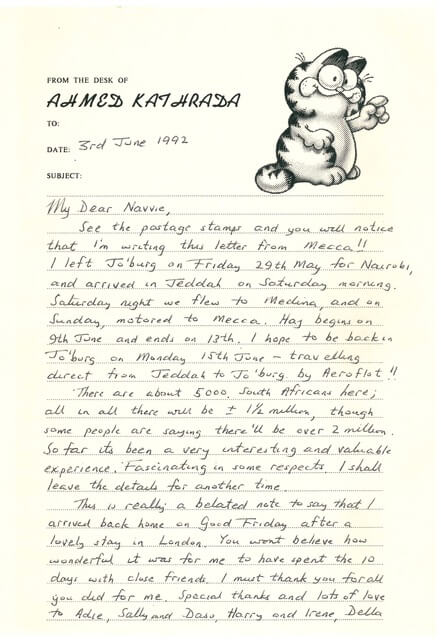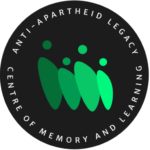Ahmed Kathrada
A tribute on the 95th anniversary of his birth
.
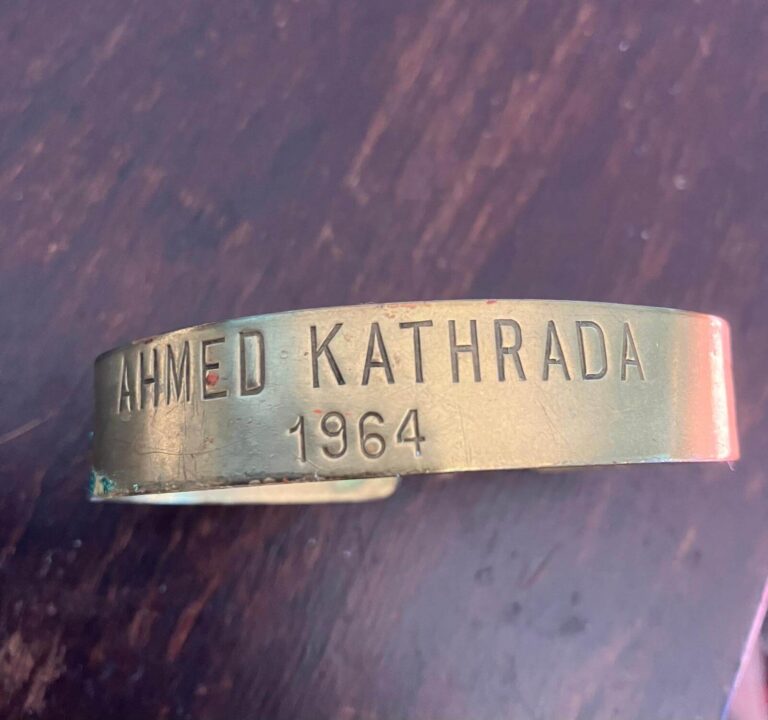
Above; bangle worn by Nadia Joseph during Ahmed Kathrada’s imprisonment, Joseph Family Collection
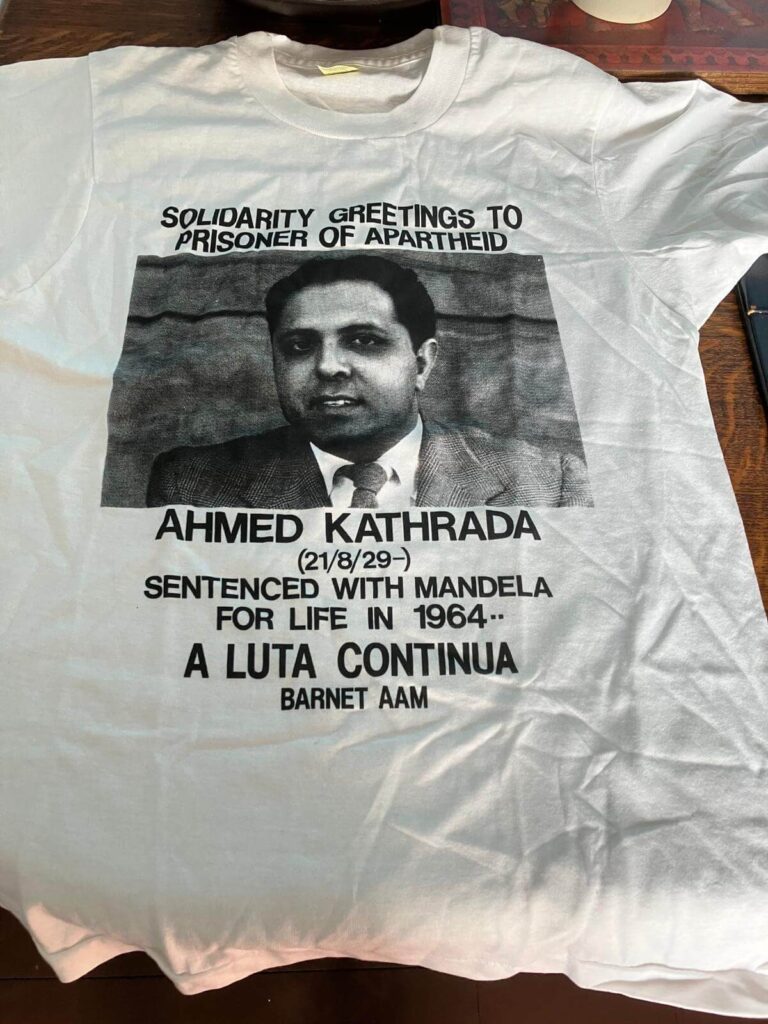
Above; T-Shirt produced by the Barnet Anti-Apartheid Group, Joseph Family Collection
Above; poster produced by the West London Anti-Apartheid Movement Group in 1970s. Local AAM groups ‘adopted’ individual political prisoners in a bid to highlight their cases, as well as those of other political prisoners. Like the West London AAM group, Barnet AAM campaigned for Ahmed Kathrada’s freedom. Courtesy Anti-Apartheid Movement Archives.
Uncle Kathy wrote to my father after he’d visited us in London in 1992. Once released from jail, Kathrada was able to use notepaper of his own choice and personalise it ‘from the desk of Ahmed Kathrada’. He addressed it to ‘Navvie’, which was the abbreviation of my father’s Indian name, Navarajh. Kathrada shows a light, playful side to his character through his choice of notepaper with Garfield the cat at the top.
The letter itself contains a more serious focus. For Muslims, a pilgrimage to Mecca at some point in their lifetime is of huge importance. For Kathrada, it was particularly poignant as he was sentenced to life imprisonment and could have died in jail so this was a journey of religious, spiritual and political meaning.
Cover page of letter from Ahmed Kathrada to Paul Joseph, The Paul and Adelaide Joseph Collection, Senate House Special Collections.
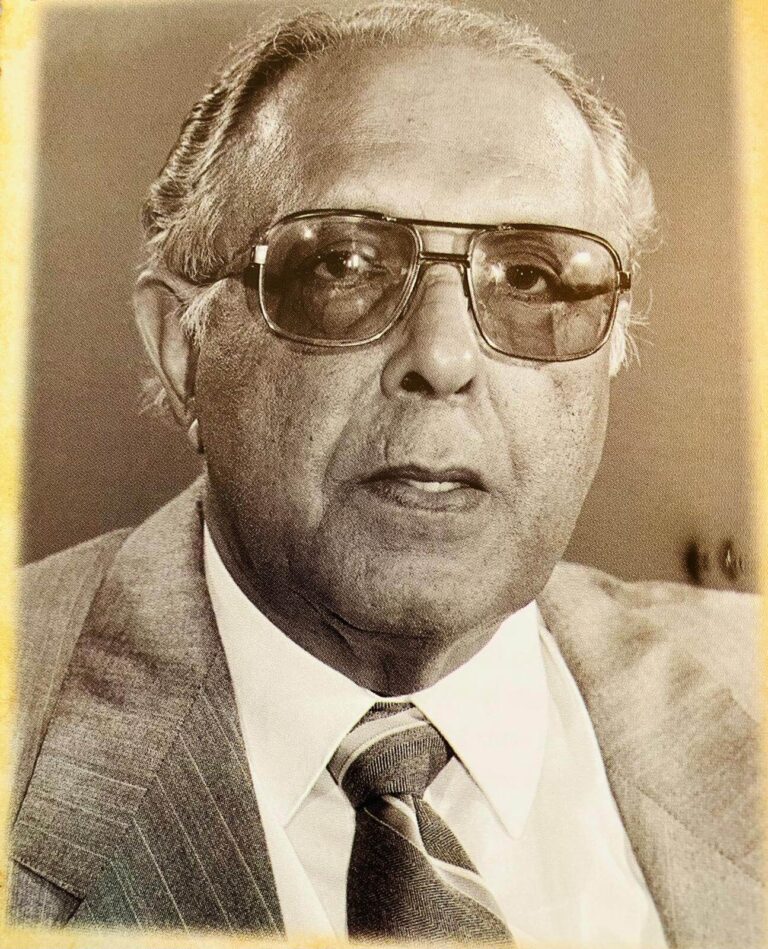
Above; portrait of Ahmed Kathrada by Jürgen Schadeburg, 1994. Published by UNISA Press, 2012.
Written by Nadia Joseph, August 2024.
